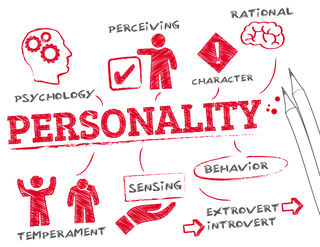Personality
Is Personality Awareness the Next Big Thing?
Technological breakthroughs have created a need for new interpersonal skills.
Posted April 17, 2018
For the past 30 years, the next Big Thing has been a technological breakthrough. But now, after working for these same three decades in interpersonal conflict resolution, I believe that the next Big Thing desperately needs to be Personality Awareness.

Knowledge of Patterns
Over half of today’s major conflicts are driven by personality-based problems. Many are related to high-conflict personality disorders, which have a narrower range of behavior and are therefore more predictable. Yet there is a huge lack of awareness of these dynamics. Knowledge of these patterns of behavior could help people avoid, manage or resolve many of the conflicts that arise all around us.
Personality awareness can help people when seeking life partners, roommates, neighbors, employees, employers and political leaders. Many people choose to overlook warning signs of potential trouble because of charm, popularity, looks, excitement and similarity of interests. Yet I have spent much of the last three decades helping people separate or get divorced from such exciting people who became high-conflict partners. In more recent years, I have consulted on many similar cases of employers dealing with high-conflict employees, and employees dealing with high-conflict managers. Most say that they wish they knew about personality warning signs and how to deal with them many months or years earlier.
Self-Awareness
Personality awareness isn’t just about other people's high-conflict personalities and their difficulties. Personality self-awareness can be very helpful too. Some people are driven to make bad choices in partners and friends, which having personality self-awareness could help them avoid. Others present themselves as being uninteresting, or unlovable, or uncooperative, when in fact they would make great partners, neighbors and employees. Again, personality self-awareness could help them overcome these mistaken beliefs and unconscious presentations of self.
Technology Has Brought Us Here
Why now? We are at a time in human history when we need to have more knowledge of personalities than ever before. Technology has rapidly made us into a society of individuals. We have spent an incredible amount of time (individually and collectively) learning how to use personal computers and smartphones. But we know far less about how to read and respond to strangers—from around the world and even in our own families.
Technology has driven our mobility, our personal independence and our freedom of communication. We have more individual choices of who we invite into our lives than ever before, yet less information than ever about them. We have created new problems that we have not yet learned how to manage.
Warning Signs and Adapting Your Approach
With personality awareness, we can adapt how we interact with the specific person. For example, high-conflict personalities show warning signs of their four key characteristics: preoccupation with blaming others, all-or-nothing thinking and solutions, unmanaged emotions and extreme behavior (that 90% of people would never do). If you recognize these warning signs, then you should know to avoid the four biggest mistakes people make with high-conflict people (see my Psychology Today blog on this) and instead emphasize a different set of skills (see my book 5 Types of People Who Can Ruin Your Life).
Much of this is counter-intuitive. Having personality awareness means managing your own responses to people, rather than trying to get others to change who they are. That rarely works, although many people keep trying that other-focused approach.
Today’s Misleading Culture of Personality
Today’s high-conflict political and entertainment cultures have put discussions of personality into a useless framework. Judging other’s personalities as “good” or “bad” or “incredible” or “terrible” tells us nothing about their dynamics, how to predict their likely future behavior and how to respond to them given their personality style. Therefore, people are easily misled by personalities who appear in the media to be charming, popular, have great looks, provide excitement, and appear to have similar interests. Just as in dating relationships or hiring, these incredible surface traits can mislead us into predicting incredible abilities, rather than realizing that such incredible-appearing people are usually covering up significant personality deficits.
Our current culture of shame and blame has triggered unnecessary defensiveness on a large scale, from children on the playground to world leaders dangerously trying to get respect. Personality awareness could help us make wiser choices in national leadership. Much is known about the personalities of good leaders in business, but little of this is known by the general public making the biggest leadership decisions.
Conclusion
For these reasons, I believe that we, individually and as a society, need to pay more attention to developing personality awareness and self-awareness skills in the coming years, especially in identifying and managing dangerous high-conflict personality traits. We need to have empathy for high-conflict people, as no one chooses to have such a personality. But we also need to learn how to set limits on their high-conflict behavior in families, at work and throughout our culture.
Widespread personality awareness could help create a wiser and more compassionate society, with more satisfying and compatible relationships. While our fun and highly-individualized technological developments have led us here, they can’t solve this one for us. We’ll have to learn and use personality awareness skills ourselves. Our survival as a species may depend on it.




